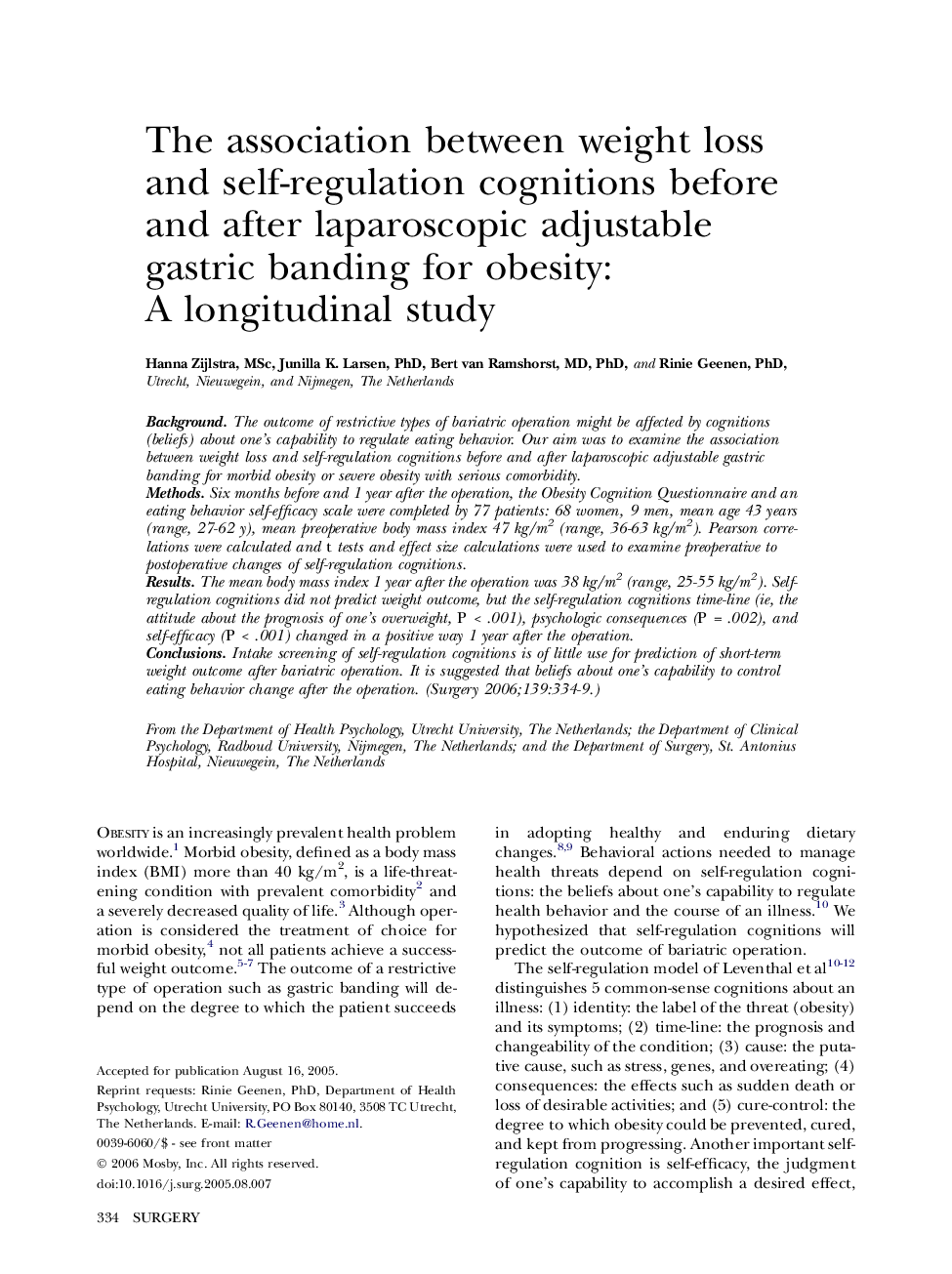| Article ID | Journal | Published Year | Pages | File Type |
|---|---|---|---|---|
| 4310225 | Surgery | 2006 | 6 Pages |
BackgroundThe outcome of restrictive types of bariatric operation might be affected by cognitions (beliefs) about one’s capability to regulate eating behavior. Our aim was to examine the association between weight loss and self-regulation cognitions before and after laparoscopic adjustable gastric banding for morbid obesity or severe obesity with serious comorbidity.MethodsSix months before and 1 year after the operation, the Obesity Cognition Questionnaire and an eating behavior self-efficacy scale were completed by 77 patients: 68 women, 9 men, mean age 43 years (range, 27-62 y), mean preoperative body mass index 47 kg/m2 (range, 36-63 kg/m2). Pearson correlations were calculated and t tests and effect size calculations were used to examine preoperative to postoperative changes of self-regulation cognitions.ResultsThe mean body mass index 1 year after the operation was 38 kg/m2 (range, 25-55 kg/m2). Self-regulation cognitions did not predict weight outcome, but the self-regulation cognitions time-line (ie, the attitude about the prognosis of one’s overweight, P < .001), psychologic consequences (P = .002), and self-efficacy (P < .001) changed in a positive way 1 year after the operation.ConclusionsIntake screening of self-regulation cognitions is of little use for prediction of short-term weight outcome after bariatric operation. It is suggested that beliefs about one’s capability to control eating behavior change after the operation.
